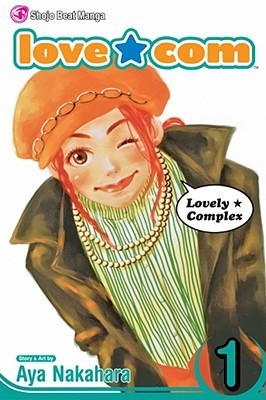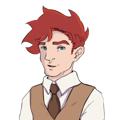Literally Graphic reviewed Love★Com by Aya Nakahara (Love★Com, #1)
Initial Thoughts on Love Com 2021
The Following is the script I wrote for my youtube channel "Initial Thoughts on Love Com"
And today I'm doing my initial impressions of the Manga series Love Com aka Lovely Complex by Aya Nakahara. I originally read this series back in college or something, I have been meaning to reread it for the channel for a while now and it takes care of the "read a Romance manga" challenge for Manga Hoarders' reading challenge so why not. I'm trying out a new style for my videos so here's the spoiler-free what you need to know.
As I said, Love Com (or lovely complex) was created by Aya Nakahara and translated by Pookie Rolf. The series is 17 volumes long and has also been adapted into an anime series, a PlayStation 2 game and a live action movie. There is apparently a sequel but it has yet to …
The Following is the script I wrote for my youtube channel "Initial Thoughts on Love Com"
And today I'm doing my initial impressions of the Manga series Love Com aka Lovely Complex by Aya Nakahara. I originally read this series back in college or something, I have been meaning to reread it for the channel for a while now and it takes care of the "read a Romance manga" challenge for Manga Hoarders' reading challenge so why not. I'm trying out a new style for my videos so here's the spoiler-free what you need to know.
As I said, Love Com (or lovely complex) was created by Aya Nakahara and translated by Pookie Rolf. The series is 17 volumes long and has also been adapted into an anime series, a PlayStation 2 game and a live action movie. There is apparently a sequel but it has yet to be translated into English.
A comedy romance shojo manga set in High School, Love Com originally started life in 2001 being serialized in the monthly Japanese magazine Bessatsu Margaret. It ran in North America from 2007 'till 2010 being published by viz' Shojo Beat imprint. In 2004 it received the Shogakukan Manga Award for shojo manga.
Flipping over to the back volume one describes itself as the following "Risa Koizumi is the tallest girl in class, and the last thing she wants is the humiliation of standing next to Atsushi Otoni, the shortest guy. Fate and the whole school have other ideas, and the two find themselves cast as the unwilling stars of a bizarre romantic comedy duo. Rather than bow to the inevitable, Risa and Atsushi join forces to pursue their true objects of affection. But in the quest for love, will their budding friendship become something more complex?"
I feel like based off of that, and genre expectations, this is likely unnecessary, but if you don't actually want to know what happens - please stop this video now.
As a cis female who was bullied for her hight and often found herself crushing unrequitedly on much shorter people through my school years it's not hard to guess why I really liked this series the first time through. I've got a lot less patience for what could perhaps be termed "shojo hijinx" I still feel like this set up in this first volume for the arc from frenemies to will they won't they to bf gf is fairly solid.
It's a classic "they only fight because they are destined to be together" plot but making them physical opposites with a lot in common otherwise helps save Love Come from being totally unrealistic. Not that shojo needs to be realistic, but since this is an otherwise real-life scenario it's rather plausible that self-conscious oddballs would resist everyone else assuming they are together.
My one real issue so far has been the biological essentialism that the characters seem to believe in when it comes to gender. It's been nice to watch two oddball highschoolers try and blunder their way into romance, and does often feel like they are subverting gender stereotypes until Risa says that since Otoni has a penis he must be a man, which is obviously not something one should just assume. That said, one of the reasons I've been wanting to reread this series is precisely because there's a transgender plotline later on that (back in the conservative and homophobic first 23 years of my life) made me kind of uncomfortable. So I'm wondering if this is actually going to be a point of character growth.
Which concludes my initial thoughts. The items that I will be keeping on eye on as I continue this reread are 1) this issue of gender and how it plays out through the rest of the series 2) Emotions - a lot of people feel like this is a story with great emotional range - and 3) Shojo cliches - the good the bad and the ugly.
And that's all folks. Since this is an older series I expect a lot of people have read the books - feel free to let me know what you think in the comments. And while we are at it, what shojo series is your favorite? Bye!

